For most small businesses and those just starting out, this is hardly affordable…
Luckily, there are a few ways to bring this cost down without hiring amateurs. I’ll explain how later. First, let’s look at a few SEO services that are ideal for beginners and won’t break the bank.
Three truly affordable SEO services to get started
Each of these services can be outsourced for no more than a few hundred bucks or done for free by yourself.
An SEO audit finds issues that may be hurting your site’s rankings and highlights opportunities to improve your SEO.
Do I need this service?
Yes. I’d recommend everyone to audit their site every so often as new issues and opportunities pop up all the time. They’re especially important when launching a new website or after major changes like a redesign.
How much will it cost?
It’s impossible to give an exact figure, but many SEOs offer free or very low-cost SEO audits.
For example, Glen Allsopp offers a $40 audit that I’d highly recommend. He donates some of his earnings from them to a dog shelter and has testimonials from the likes of Rand Fishkin, Britney Muller, and our very own Tim Soulo (yes, we’ve used his services before!).
Here’s an example of what you get:
Just be careful with some of these services. While not the case with Glen’s audits, some agencies offer them for free (or nearly free) purely so they can upsell you. There’s nothing wrong with this if the audit is useful, but all the less reputable folks send you is a long PDF with hundreds of issues. These are usually just exports from SEO tools that you can get for free.
For example, if you were to sign up for a free Ahrefs Webmaster Tools (AWT) account and verify your website, it wouldn’t cost you a dime to check for 170+ SEO issues with Site Audit. Unlike with many free SEO audits, we also group issues by priority and explain how to fix them.
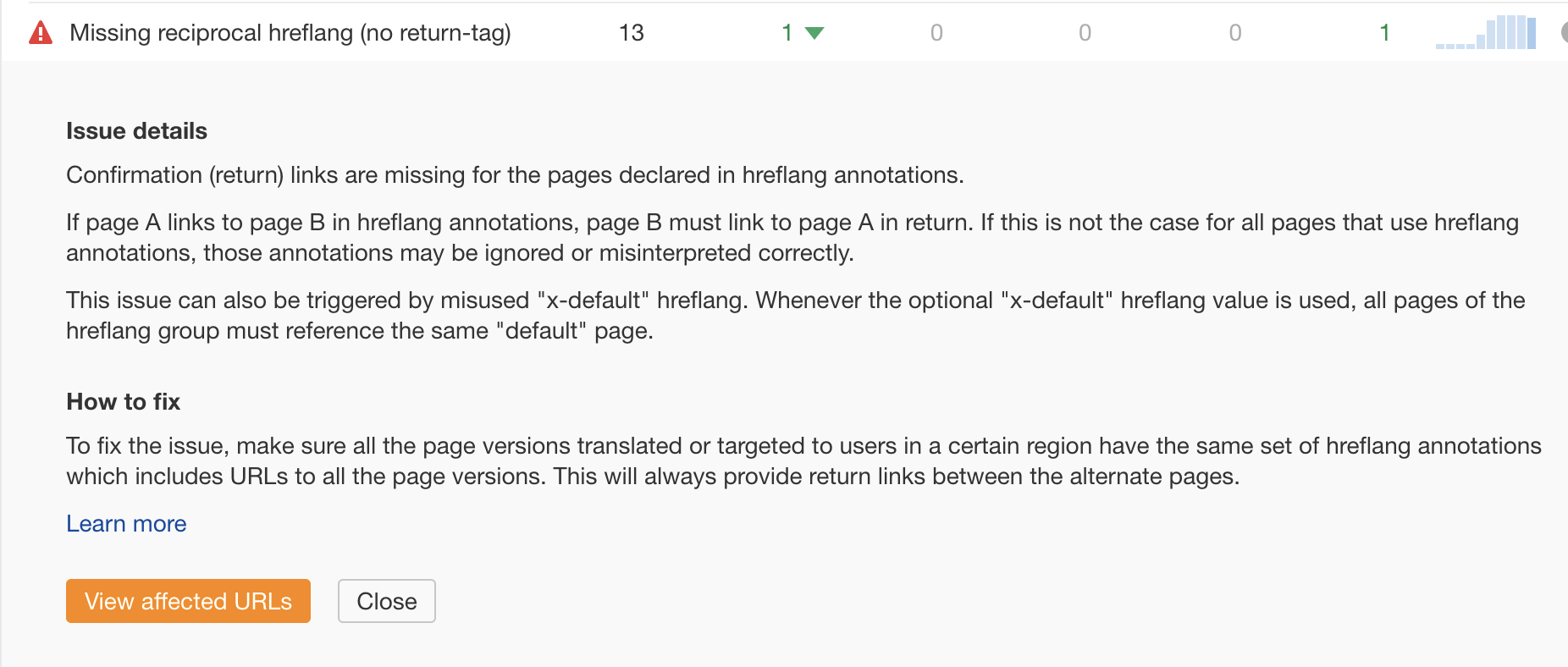
Keyword research is the process of finding what people type into search engines like Google to look for the products, services, and information you offer.
Do I need this service?
Yes. Without keyword research, you’re going in blind. You have no idea what people are searching for or what you should be trying to rank for. Remember, ranking for things nobody searches for is pointless, as you’ll get no traffic even if you rank #1.
How much will it cost?
It’s hard to give an exact figure, but probably around $200-$500 for a quality service.
This is based on our testing of three keyword research gigs on Fiverr a couple of years ago. They cost $15, $80 and $150 respectively and none of them were great. Sam, Patrick, and I each blindly reviewed them and even the top-scoring gig only scored 5/10.
The problem here is the same as with SEO audits: many people just send you an overwhelming list of thousands of keywords exported from an SEO tool like Ahrefs.
Here’s me literally making that point in the video:
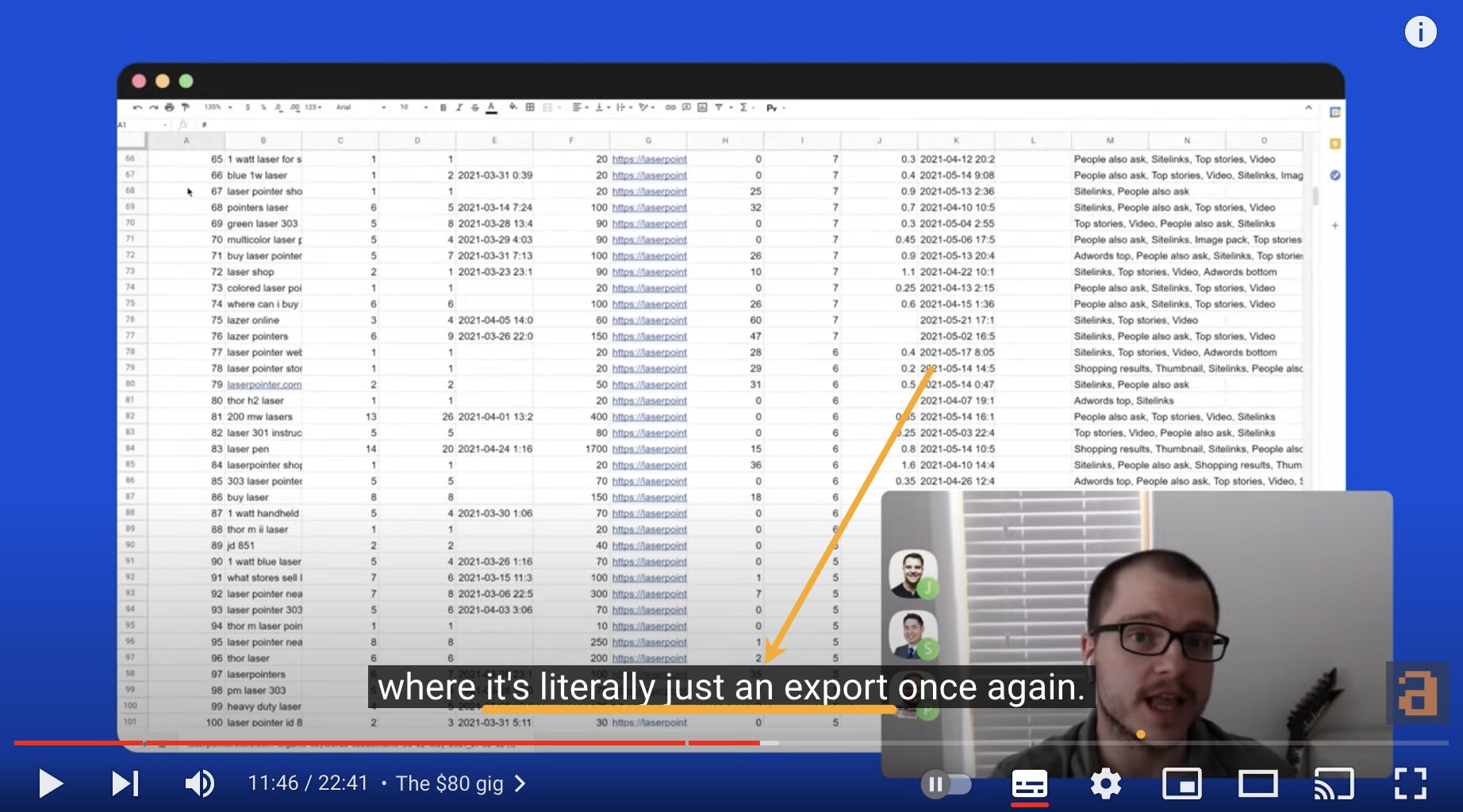
It seems counterintuitive, but less is more with keyword research gigs because you want something you can actually take action on—not a huge list of random keywords.
For example, a big part of keyword research is understanding what searchers are looking for (i.e., search intent). This is extremely important to know because you need to give searchers what they want to stand the best chance at ranking.
How would an SEO professional figure this out? By looking for commonalities in the search results…
For example, the results for “golf clubs” are all ecommerce category pages promising the lowest prices:
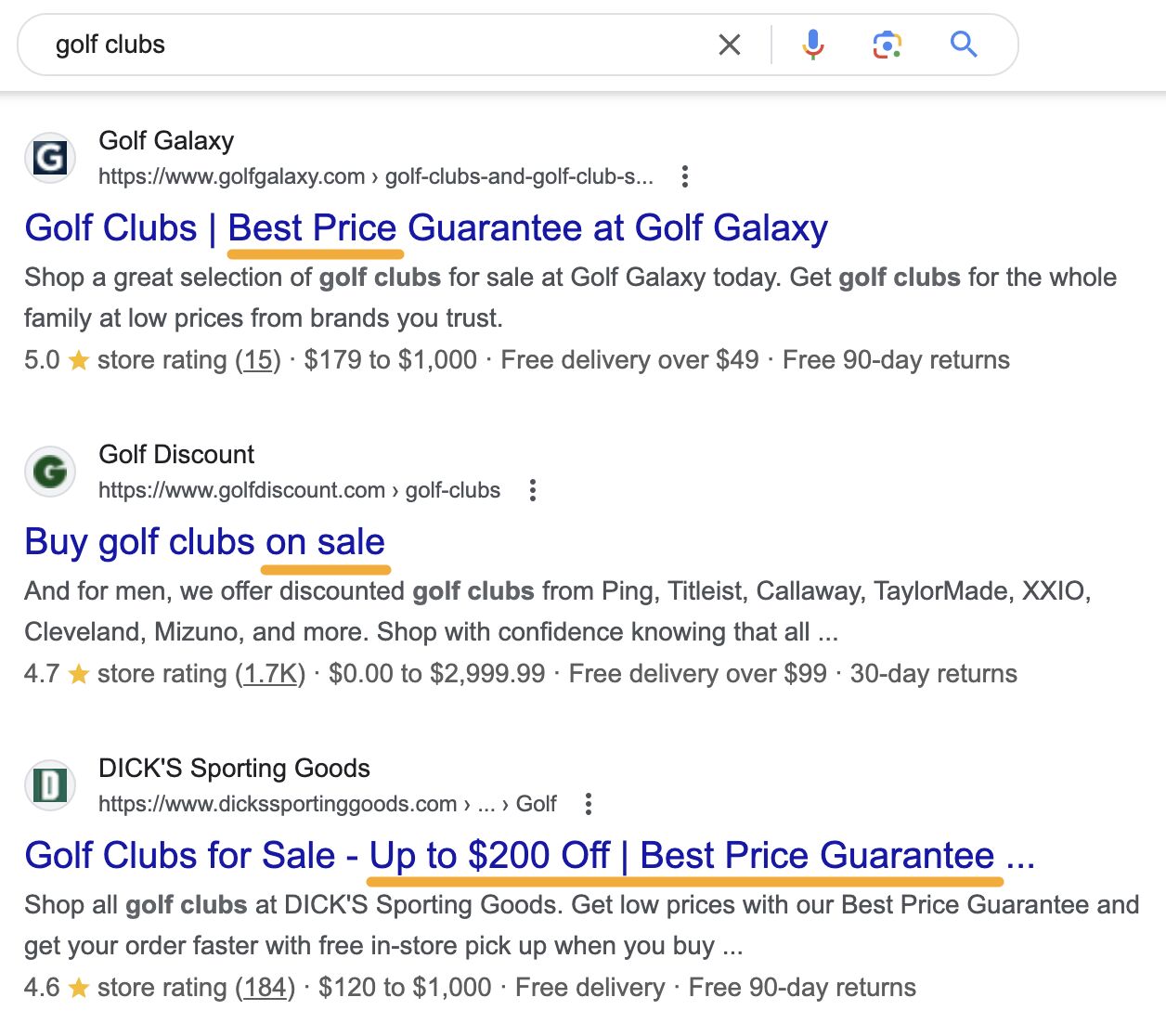
This tells you that searchers are in the market for some clubs and want to shop around. They’re also price-conscious and aren’t looking for expensive sets.
Historically, the providers of cheap keyword research services probably wouldn’t have given you this information because it took actual manual work to figure out. These days, with AI, that’s not really the case.
In Ahrefs, for example, identifying search intent is as easy as clicking the AI-powered “Identify intents” button. This analyzes the search results and tells you what people seem to be searching for in one click.

If you’re hiring someone to do keyword research for you, make sure intent analysis is part of the deliverable.
Here’s an agency that seems to have the right idea, judging by their FAQ section:

Business Profile is a free tool for local businesses to manage their appearance on Google. It’s something every local business should have you as you can’t rank in Google Maps or the “local pack” search results without one.
Do I need this service?
Maybe. If you’re happy to reply to reviews and spend a bit of time each month keeping everything updated, then no. If you have no time or interest in doing this, then yes, it makes sense to have someone manage things for you.
How much will it cost?
If Fiverr is to be believed, hardly anything…
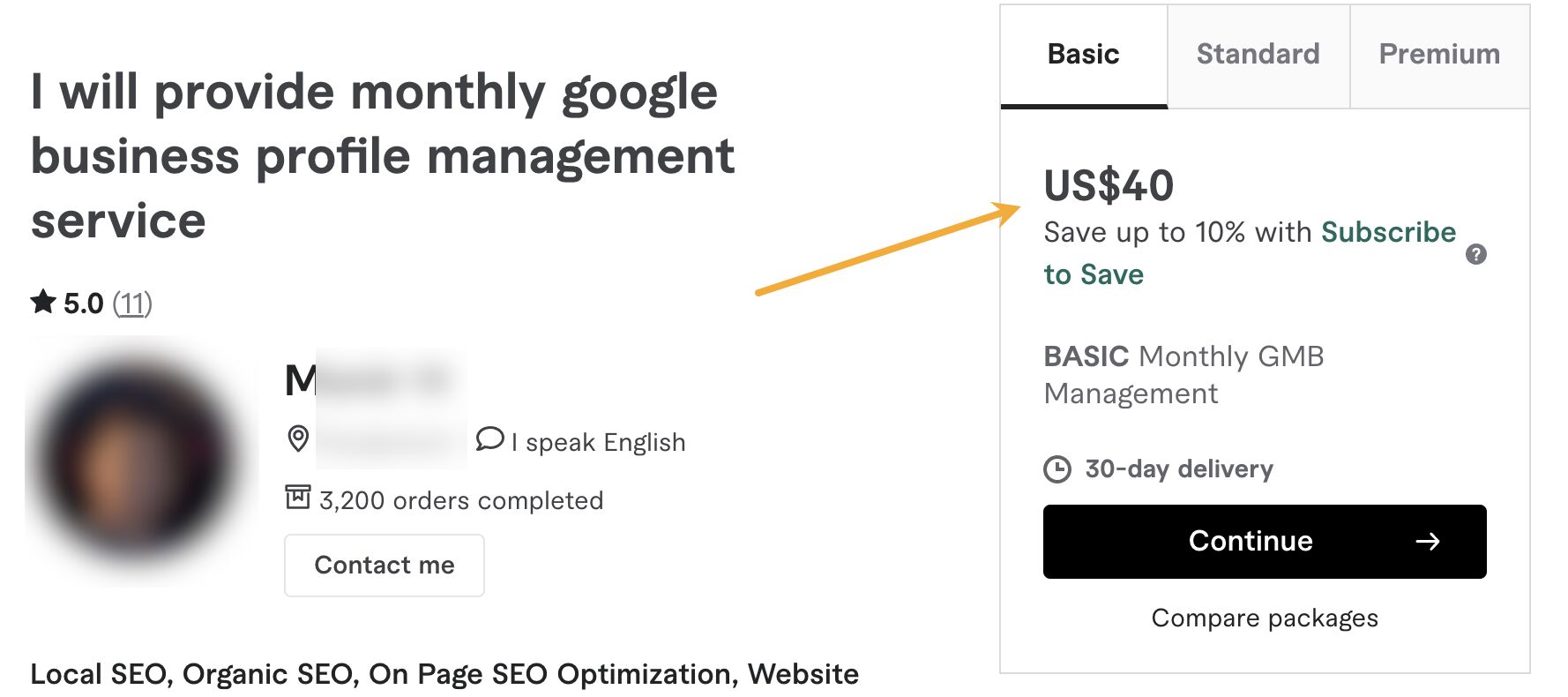
But the reality is that most of the gigs offer vague nonsense that won’t help SEO.
I mean, what exactly is meant by “complete optimization” below? And what images and videos are they uploading and geo-tagging? I’m pretty sure they’re not planning to come down and snap some pics…
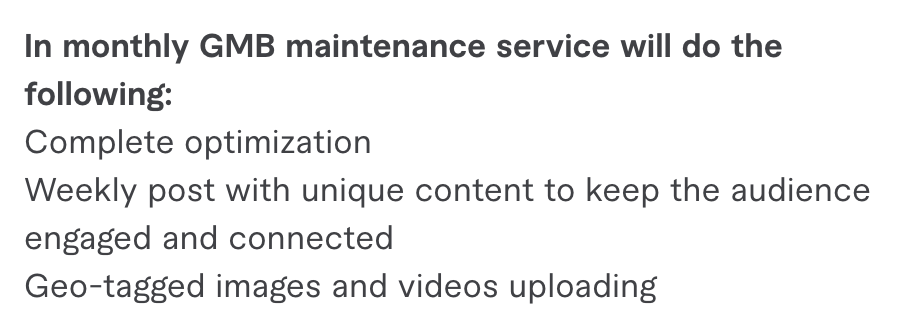
I don’t recommend buying gigs like these. You’re better off paying someone a monthly fee and telling them what needs to be done.
Here’s what I’d suggest focussing on:
- Updating information. Have your opening hours changed? Do you need new products or menu items added? Having someone you can ping to do this stuff saves time.
- Replying to reviews. I’d especially recommend this one if you’re the type to get a bit snarky in response to bad reviews. I’ve seen business owners do this many times, and it always makes things worse. Having someone who isn’t emotionally invested in the business reply can help.
- Posting updates. Having someone repurpose and post updates you post on other platforms like Instagram or TikTok can make life easier.
Cost-wise, it depends on how much needs to be done. If your business is popular and gets hundreds of reviews a month, it’s obviously going to cost more. The same is true if you want lots of updates posted.
However, one interesting thing to note here is that you don’t actually need to hire an SEO professional for this. It’s literally just updating info, replying to reviews, and posting updates. A good virtual assistant or cash-strapped student can do this—which can help make things a bit more affordable.
If you’re looking to go beyond the three fairly light services above and get really stuck into SEO, here’s some advice to lower costs without sacrificing quality.
1. Do some of the work yourself
Ordering takeout is obviously going to cost more than cooking a pizza yourself, but you’re probably never going to do the latter because… making a pizza sounds hard, right!? Where do you even start?
It’s the same with SEO. Hiring an SEO professional costs more, but the DIY route sounds like a lot of work!
But here’s the thing: it doesn’t have to be all or nothing. You can dramatically reduce your SEO costs by opting for a hybrid route where you do the easy stuff yourself and hire SEO professionals to do the rest.
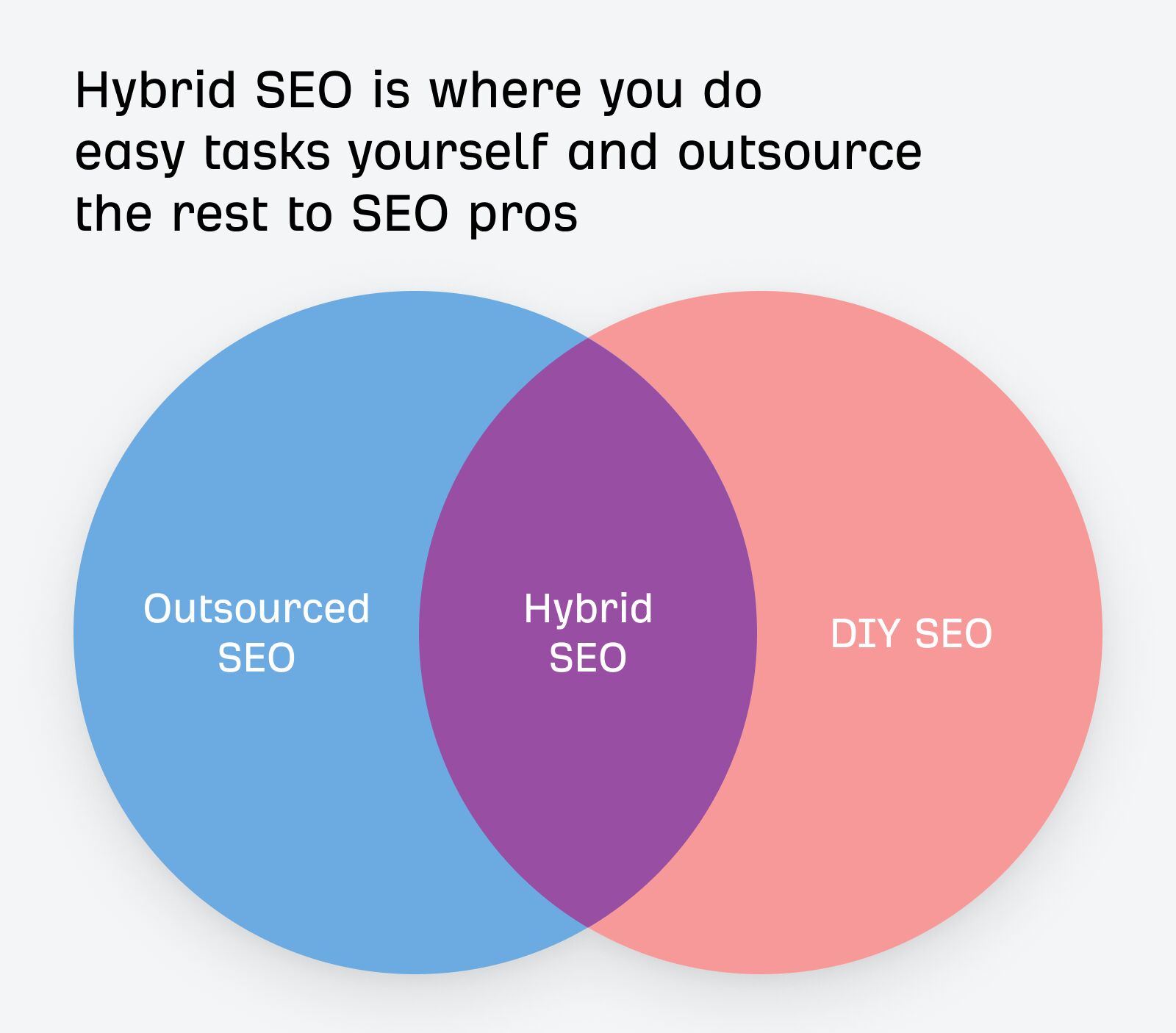
For example, it takes two minutes and zero skill to improve your on-page SEO with our free AI writing tools. Here’s what our AI meta description generator came up with for this very article:
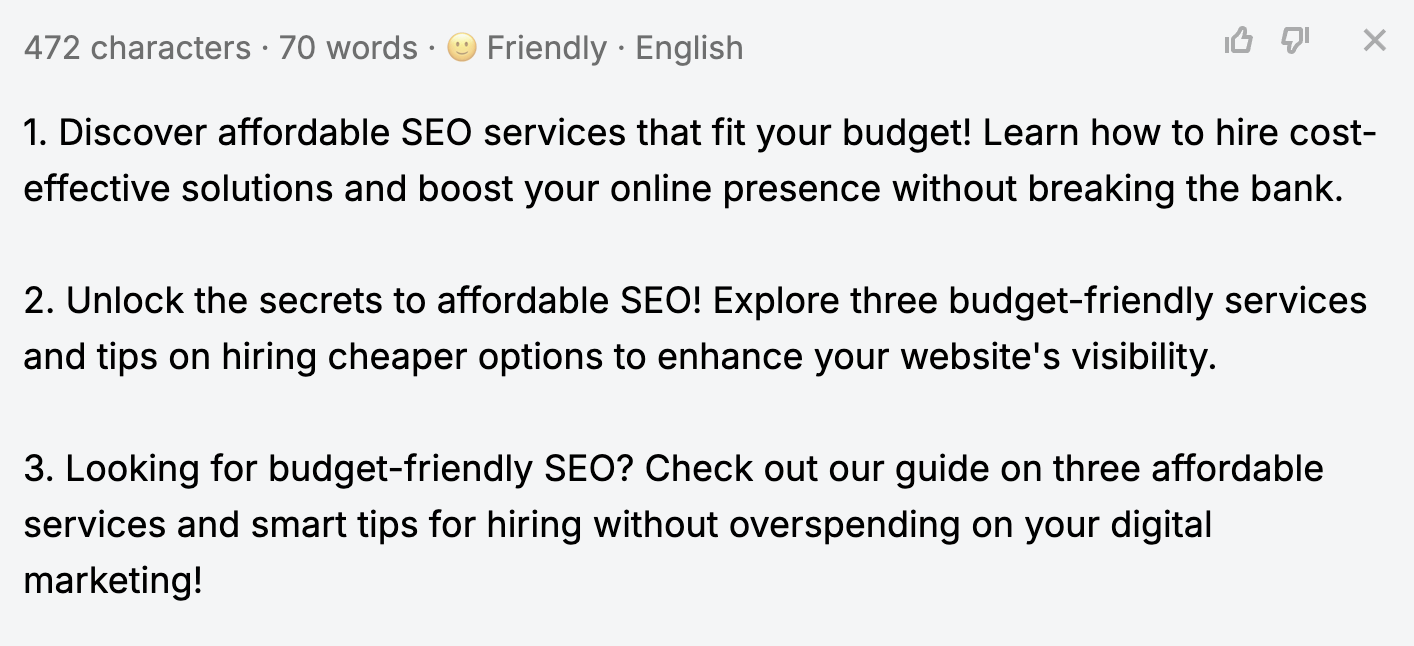
If you use Ahrefs SEO Toolbar to live inspect this page, you’ll see I liked option two so much that I pretty much used it verbatim:

This is the kind of task you can easily do yourself. Save your budget for the harder and more time-consuming tasks.
2. Hire freelancers, not agencies
According to our SEO pricing survey, the median cost of a monthly retainer is 4x higher with agencies than freelancers.
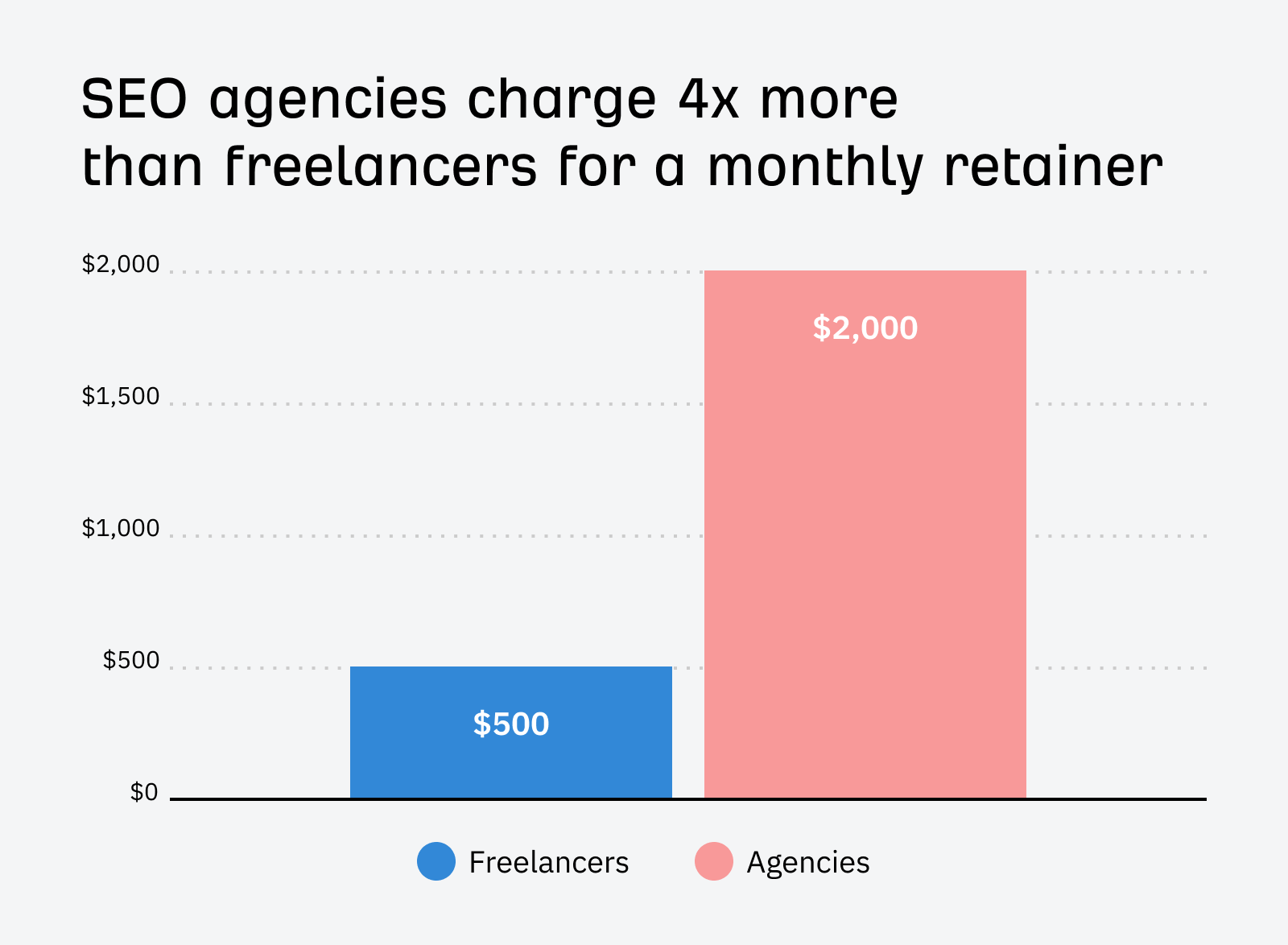
This happens for the same reason a pizza costs more from a restaurant than a food truck: lower fixed costs. Freelancers have no salaries to pay or office space to rent, so they don’t need to charge as much to break even.
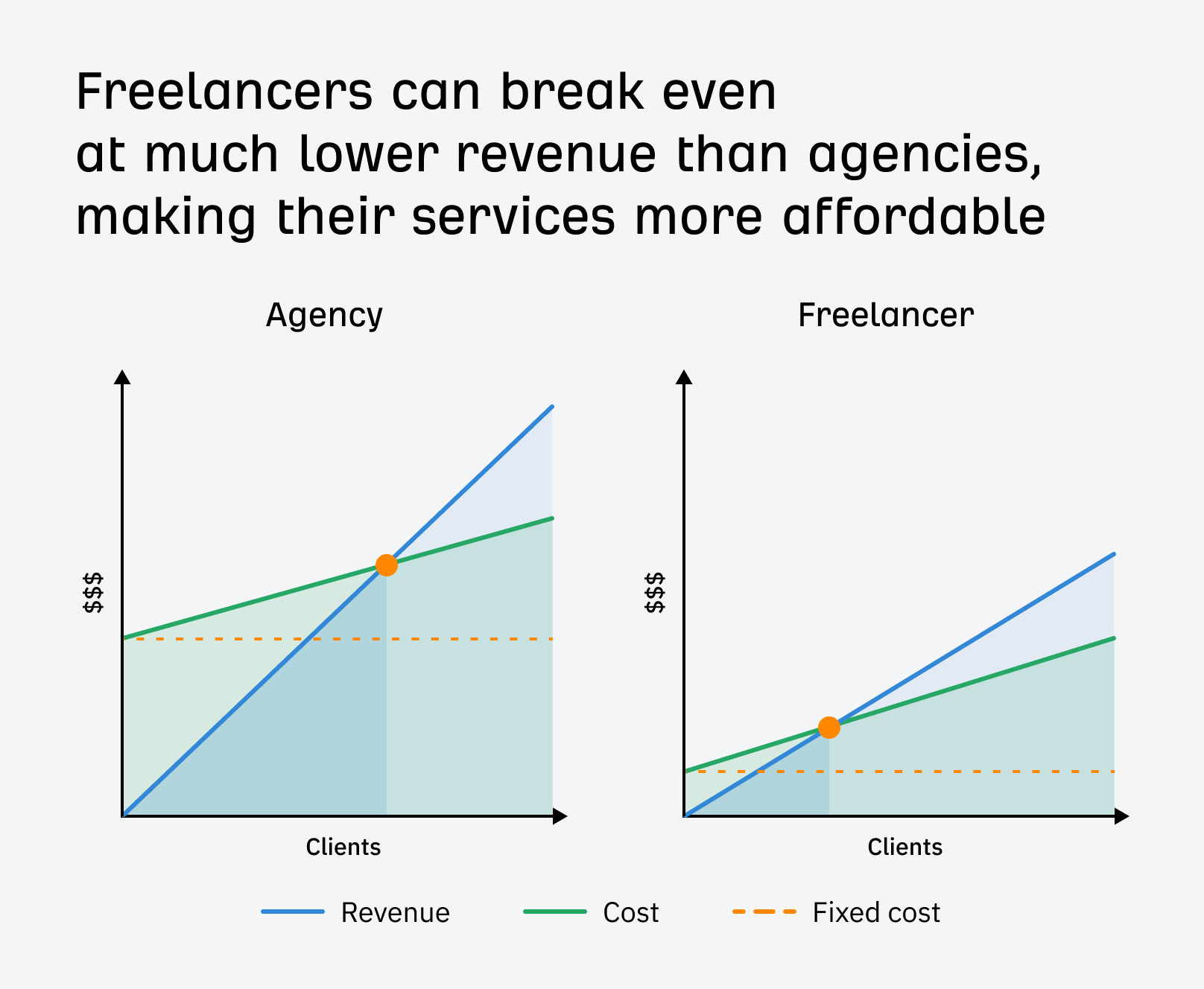
Freelancers are also more flexible, which makes them a better choice for a hybrid SEO approach (see tip #1). Unlike agencies that have their own internal resources and like to handle everything, freelancers tend to be more open to helping with specific SEO tasks and working with internal resources.
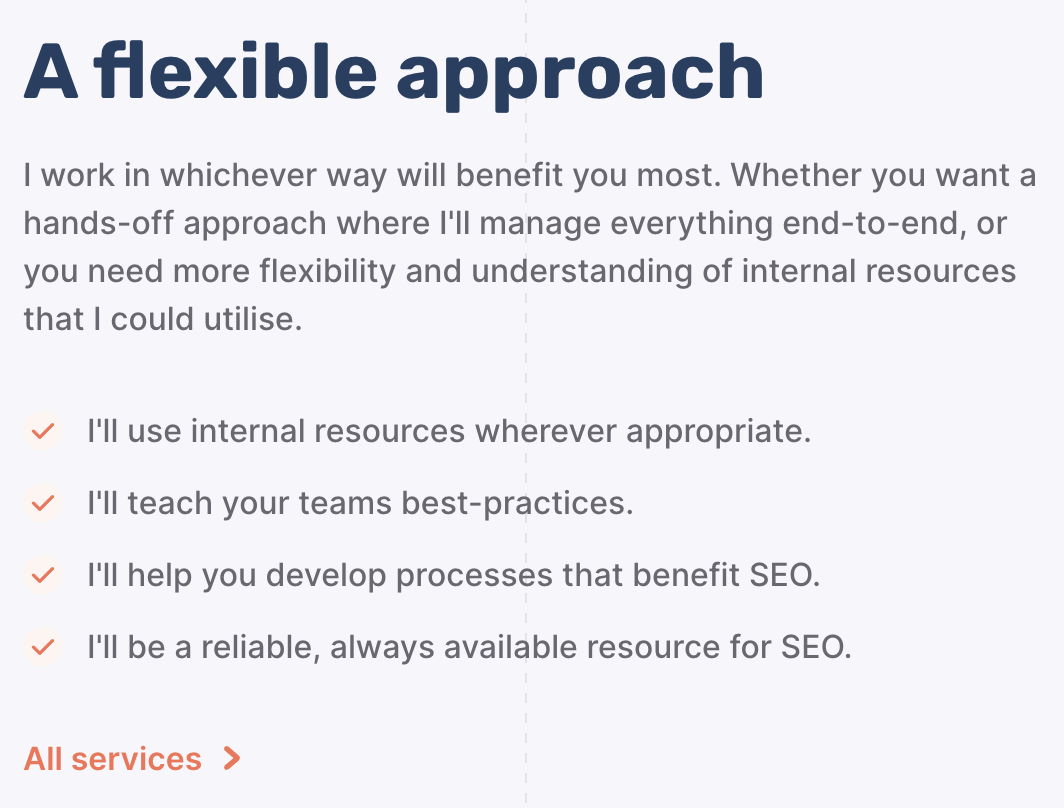
This means you’re not paying for services you don’t need or resources you already have—two things that also help to improve the affordability of your SEO.
3. Pick reputable providers, but not too reputable
Last month, I went to London’s top-rated pizzeria. For someone as obsessed with pizza as I am, it was perfect. But to be honest, I’ve probably had pizzas just as good for less.
My point? In life, you often pay for reputation—not quality.
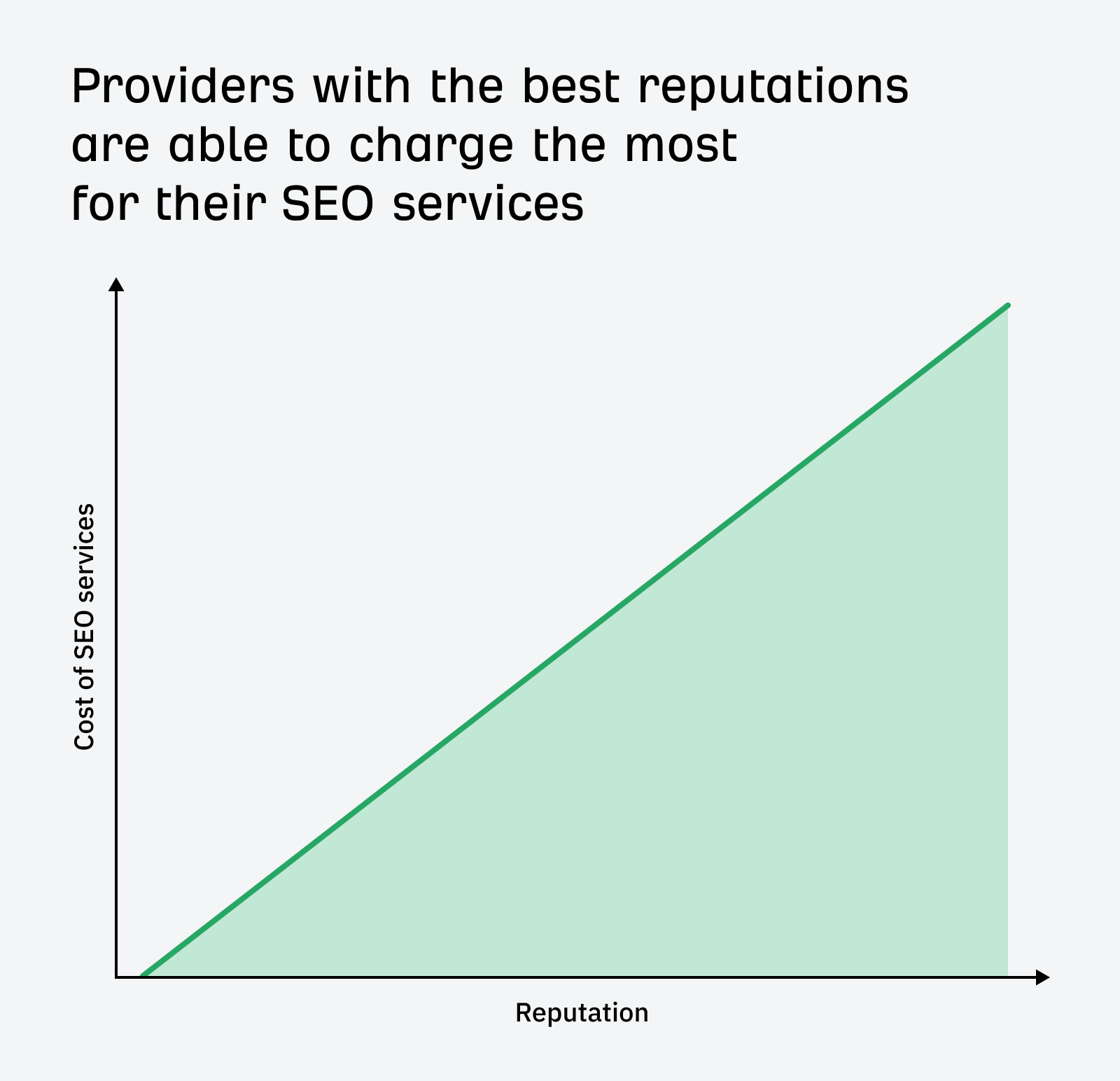
Does this mean you should hire folks with little or no reputation to keep things affordable? Absolutely not. If you hire cheap folks who use shady black-hat SEO tactics, Google could penalize your site. If this happens, it’ll cost you way more in the long run.
What you want to look for are the underdogs; folks who haven’t won every award under the sun, but who still have a proven track record and an ethical approach to SEO.
For example, I’m sure you’ve heard of Rise at Seven. They’ve won all kinds of awards:

For big brands with big budgets, they’re no doubt a great choice. For small businesses… probably not. They’re just not going to be affordable as you’re not their market.
Now take someone you likely haven’t heard of, like Sam Underwood. If you check his website, you’ll see that he’s done great work for some seriously well-known clients and has the testimonials to prove it.
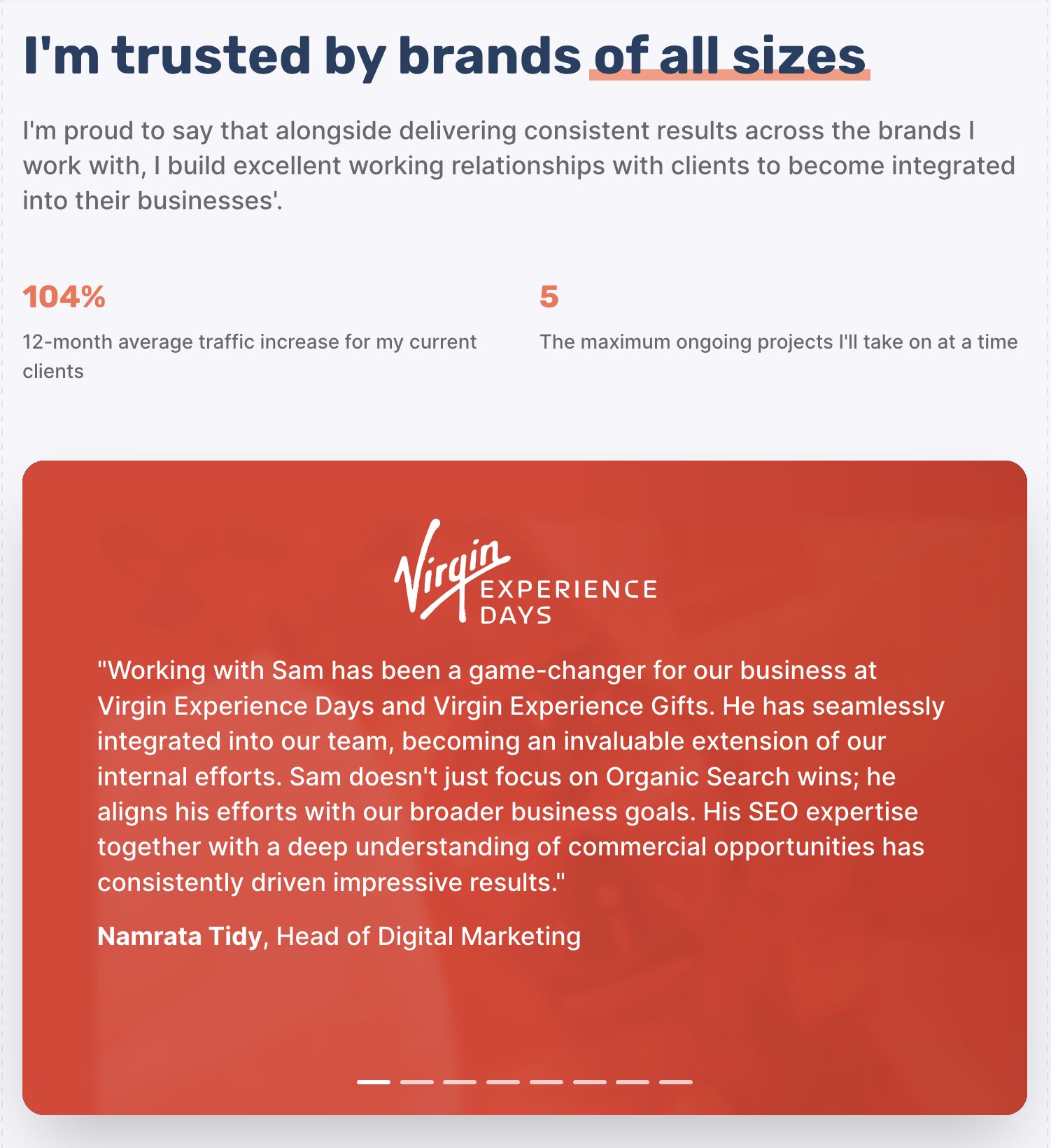
He’s also written a few incredible posts for the Ahrefs blog:
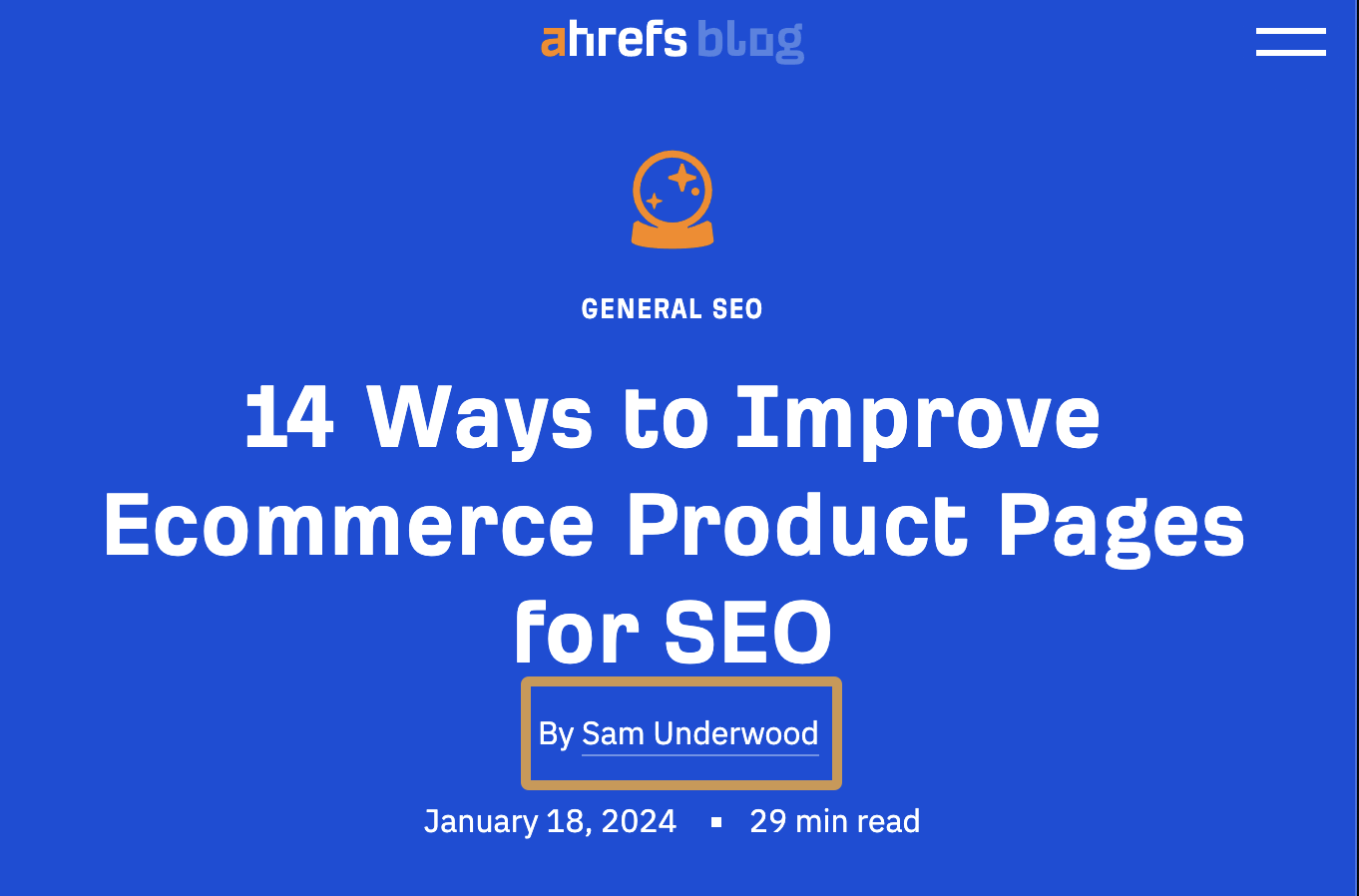
This is the kind of person you want to work with if you want great work at an “affordable” price.
FAQs
Why should small businesses invest in SEO?
Because ranking high in Google brings you passive, valuable traffic month after month.
For example, Ahrefs estimates that our blog gets $456,000 worth of organic traffic every single month. This is the estimated cost of acquiring that same traffic via paid Google ads.
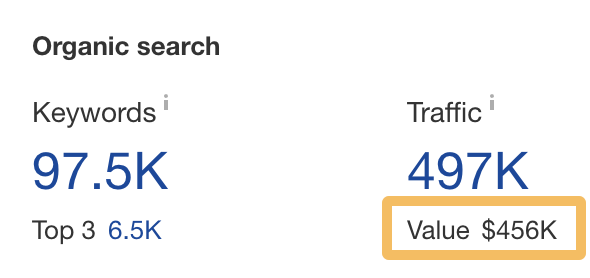
What other budget-friendly SEO services are there?
Content creation, on-page SEO, link building, technical SEO… pretty much every SEO service can be at least more budget-friendly if you follow the tips above.
What else should I look for in a reputable SEO provider?
Look for these things when vetting service providers:
- Good communication. If communication sucks to begin, it’ll only get worse. No-one wants to have to chase people for updates, so cut them loose.
- Transparency. Run a mile if they refuse to tell you their strategy or approach or just say vague things like “We’ll build more links.”
- Realistic goals and timelines. What do they think the result of their work will be, and how long will it take? They should be able to give you at least some idea.



